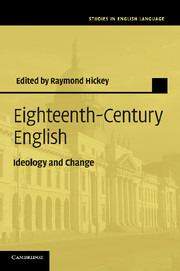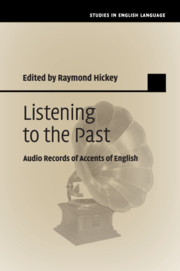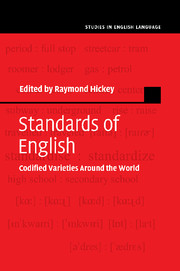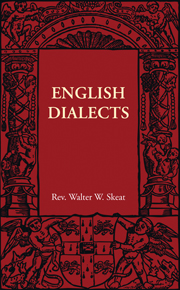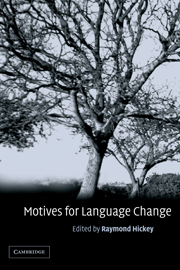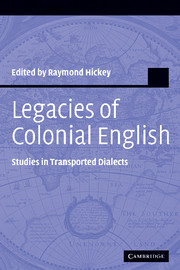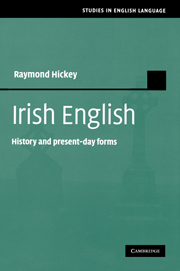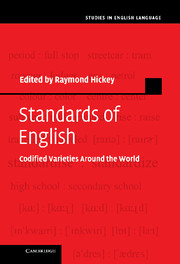Eighteenth-Century English
The eighteenth century was a key period in the development of the English language, in which the modern standard emerged and many dictionaries and grammars first appeared. This book is divided into thematic sections which deal with issues central to English in the eighteenth century. These include linguistic ideology and the grammatical tradition, the contribution of women to the writing of grammars, the interactions of writers at this time and how politeness was encoded in language, including that on a regional level. The contributions also discuss how language was seen and discussed in public and how grammarians, lexicographers, journalists, pamphleteers and publishers judged on-going change. The novel insights offered in this book extend our knowledge of the English language at the onset of the modern period.
- Presents contributions by leading scholars of English historical linguistics
- Includes a comprehensive timeline of social and linguistic developments in the eighteenth century
- Provides a user-friendly guide to late modern English language studies
Reviews & endorsements
"Eighteenth-Century English: Ideology and Change represents another significant contribution to English historical linguistics in the Studies in English Language series … under the supervision of Merja Kytö. The volume, edited by Raymond Hickey, contains sixteen essays by leading scholars whose main research interests include the development of English in the Late Modern period. The book therefore serves as a useful companion to its predecessor on the nineteenth century, Nineteenth-Century English: Stability and Change (2006) … I am confident that the studies in this volume will encourage further investigation into this prolific, yet somewhat neglected, period of the history of the English language.'
María José López-Couso, English Language and Linguistics
Product details
April 2014Paperback
9781107686090
446 pages
229 × 152 × 23 mm
0.59kg
12 b/w illus.
Available
Table of Contents
- 1. Attitudes and concerns in eighteenth-century English Raymond Hickey
- 2. Prescriptivism and the suppression of variation Joan Beal
- 3. Women's grammars Carol Percy
- 4. Eighteenth-century women and their norms of correctness Ingrid Tieken-Boon van Ostade
- 5. Lowth as an icon of prescriptivism Ingrid Tieken-Boon van Ostade
- 6. Queeney Thrale and the teaching of English grammar Karlijn Navest
- 7. Coalitions, networks, and discourse communities in Augustan England: The Spectator and the early eighteenth-century essay Susan Fitzmaurice
- 8. Contextualizing eighteenth-century politeness: social distinction and metaphorical levelling Terttu Nevalainen and Heli Tissari
- 9. Expressive speech acts and politeness in eighteenth-century English Irma Taavitsainen and Andreas H. Jucker
- 10. Variation and change in eighteenth-century English Richard W. Bailey
- 11. Variation in sentential complements in eighteenth- and nineteenth-century English: a processing-based explanation Teresa Fanego
- 12. Nationality and standardisation in eighteenth-century Scotland Charles Jones
- 13. English in eighteenth-century Ireland Raymond Hickey
- 14. Changes and continuities in dialect grammar Bernd Kortmann and Susanne Wagner
- 15. 'Be pleased to report expressly': the development of a public style in late modern English business and official correspondence Marina Dossena
- 16. Registering the language - dictionaries, diction and the art of elocution Lynda Mugglestone.

